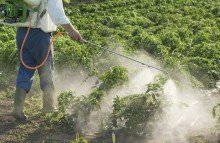Two influential Conservative MEPs have today criticised calls from the European Parliament to improve growers’ access to low-risk pesticides – because the proposals do not go far enough.
Julie Girling and Anthea McIntyre said the proposals put forward by the European Parliament’s Environment Committee represented a wasted opportunity.
Mrs Girling, MEP for the West of England and Gibraltar is lead negotiator on the proposals for the European Conservatives and Reformists grouping in the Parliament. Miss McIntyre, MEP for the West Midlands, is a member of the Agriculture Committee and Conservative employment spokesman.
They spoke out as a majority of MEPs sitting in Strasbourg approved a resolution stressing the need to increase the availability of biological low-risk pesticides. It calls on the EU Commission and the Member States to prioritise such plant protection products, and for a revision of Regulation (EC) No 1107/2009 to permit their fast-track evaluation, authorisation and registration.
Mrs Girling and Miss McIntyre withheld their support for the measures because they focused entirely on low-risk biological plant-protection products and ignored the potential of non-biological equivalents.
In a joint statement they said: “Sadly this resolution is a product of tunnel vision. It looks only at biological pesticides – when we need to be looking at the possibilities from the whole range of low-risk products, including synthetic and chemical ones.
“We are all for giving farmers and growers the best plant-protection toolbox possible, once all due consideration has been paid to questions of efficacy, as well as the risk to human health and the environment.
“In the wake of the moratorium on neonicotinoids – and its devastating consequences for oilseed rape production in the EU – that is more important than ever.
“That means we need to overcome this apparent fetish over biological products. Instead we must have a regime which assesses all potential products – regardless of origin or method of production – on an equal basis with a consistent and realistic measurement of potential risk.”
Currently, only one of the seven low-risk pesticides approved by the EU and available to farmers is non-biological.







